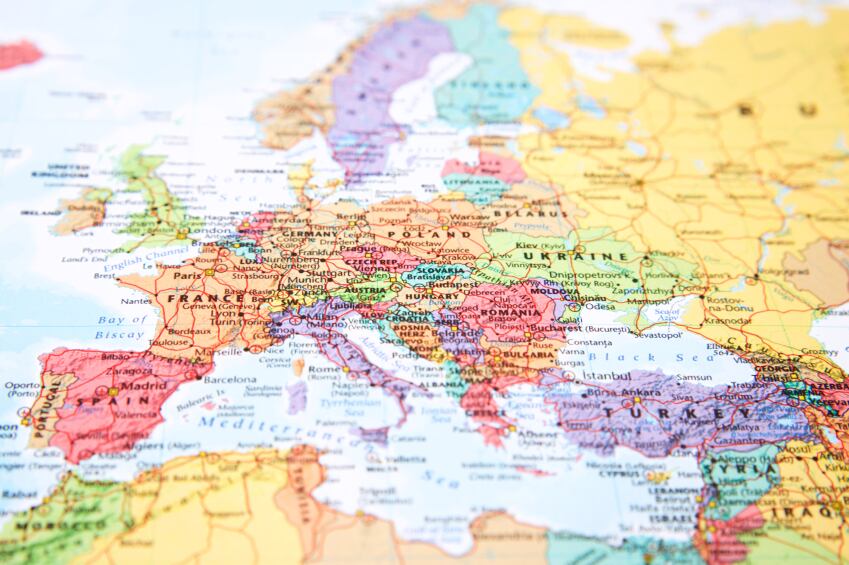Drinks, juices, coffee, sweets, chocolate and baby food are just some of the trademarked products that are being manufactured using cheaper, poorer quality ingredients for the Eastern and Central European markets, according to the Czech Republic.
A press spokesman at the Ministry of Agriculture said Pepsi Cola, Sprite, Nestea, Danone, Rama, Rio Mare were just some examples
It tabled the issue at an AG committee meeting last month, and other member states confirmed the scale of the problem. The Czech Republic wants to see expert discussions at an EU level with the aim of protecting consumers by finding legislative measures to prevent the practice because, in its eyes, consumers are being misled. “Regardless of a region or a particular country, products from one producer and of the same name should be of the same quality and should have the same content of ingredients for all consumers.”
“Impertinent manipulation”
The issue has received widespread media coverage in the Czech Republic, and does not sit easily with an increasingly disgruntled public.
A a survey of over 1000 consumers commissioned by the Czech Agriculture and Food Inspection Authority (CAFIA) found the overwhelming majority (88%) said they felt “annoyed and offended” while 36% said it amounted to “impertinent manipulation”. Only 4% said they did not mind. Meanwhile 77% said they did not agree with the justifications given by producers about differing taste preferences and 54% said they did not agree at all.
Just over half (51%) said the real reason was so companies could save money on raw materials.
Ethically problematic - but not illegal
Czech minister Marian Jurečka tweeted: “Today I had talks with European Commissioner Jourová . We will solve the problem of dual quality food in the EU."
But not everyone shares Jurečka's optimism.
Spokesperson for the CAFIA, Pavel Kopřiva said: “It has to be understood, that this practice – however ethically problematic it may seem – is not illegal as long as the difference in composition is adequately reflected in difference of ingredients information on the product cover."
He told FoodNavigator that since the CAFIA deals with illegal foodstuff and not ones that are "potentially ethically problematic", it does not keep any figures to illustrate the extent of the problem, nor could he provide a list of offending producers.
“But generally we are talking about large multinationals,” he added. "[And], judged by frequency of consumer complaints and also its emotionality, the problem is considered to be serious by a majority of Czech consumers.”
'The consumer of the European Union'
Food law expert and managing director at Hylobates Consultancy, Luca Bucchini, said the situation at first appears simple but is actually more complicated.
EU law protects consumers across the bloc from ingredients that are dangerous and unsafe to eat, but it doesn't legislate on maintaining an equal quality for trademarks, and companies are free to remove certain ingredients that are negatively perceived from a recipe because it is difficult to market them in certain member states but not others. For instance, palm oil-free logos are increasingly seen in Belgium and France but palm oil is not considered to be a dangerous ingredient under EU law.
“This is down to the public's awareness and culture,” says Bucchini. “If that's the concern, the issue is that authorities in many countries have not spent in informing the public about nutrition. That's an issue that can't be faulted on food businesses.”

If accurate information is given on the product's ingredient list then consumers are not being misled because they are expected to read this information, and they may not have the right to assume that products are the same in different countries.
However, he said the situation is becoming less clear cut as a new concept emerges in case-law of the European Court of Justice – the consumer of the European Union.
“If we accept there is 'a consumer of the European Union', who's as likely to buy a product in Athens or in Helsinki, who's exposed to the same or similar advertising, and accept that there's likely confusion, following trademark law, then the practice may indeed be misleading,” he said.
“I accept that a consumer may expect Nutella, Kit Kat – just random examples – to taste and have the same ingredients in the UK, Italy, or Finland, and that he or she may find out that they are not exactly the same only after buying and tasting. I also accept that these brands are advertised globally, so a consumer in Finland may buy Kit Kat because he's been exposed to ads in Greece.
"However, I see so many problems with mandating that a brand name must correspond to a specific composition across Europe that it does not seem viable when you consider that consumers are expected to read product labels.”
Another problem Bucchini highlights is that products may target the same consumer demographic - a middle-class family - but that wages differ significantly in, say, Sweden and Romania and the Romanian family may not have the disposable income to spend on a product that costs more to manufacture, and so is sold at a higher price.
A piece of (trans fat-laden) cake
Czech television channel CT24 carried out its own tests on the same branded products purchased in Austria, Slovakia and the Czech Republic. A yoghurt was coloured with clean label beetroot in Austria but insect-derived carmine in its eastern neighbours, while a branded margarine in the Czech Republic and Slovakia was made up of 20% water unlike its Austrian equivalent. The channel also reports that the foods were most expensive in the Czech Republic.
In some cases, however, the issue goes beyond consumers being misled to putting their health at risk.

While many manufacturers in Western Europe have voluntarily reduced their use of partially hydrogenated vegetable oils, which contain high levels of dangerous industrial trans fats, they remain common in Eastern Europe.
A 2012 study which analysed biscuits, wafer, microwave popcorn and fast food items showed that some Eastern Europeans could be consuming as much as 30 g per day.
Consuming as little as 5 g per day is associated with a 23% increased risk of coronary heart disease, according to the World Health Organisation (WHO).
The survey included food items from multinational foodservice chains McDonald’s and KFC. “In Eastern EU countries, however, the amount of [trans fatty acids] in these products is still high. We even observed this difference in products bought at the same retailers in the Eastern and Western EU countries (eg: Carrefour),” write the authors.
